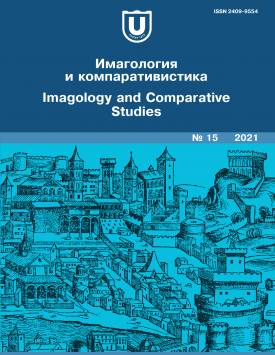Postcolonial Trauma in the 21st-Century English Female Fiction
The postcolonial fiction of the 21st century has developed a new version of family chronicle depicting the life of several generations of migrants to demonstrate the complexity of their experience, different for each generation. This article aims at investigating this tradition from the perspective of three urgent problems: trauma, postcolonial experience, and the “female” theme. The author uses the most illustrative modern women’s postcolonial writings (Z. Smith, Ju. Chang) to show the types of trauma featured in postcolonial literature as well as the change in the character of traumatic experience, including the migrant’s automythologization from generation to generation. There are several types of trauma, or stages experienced by migrants: historical, migration and selfidentification, more or less correlated with three generations of migrants. Historical trauma is the most severe and most often insurmountable for the first generation. It generates a myth about the past, terrible or beautiful, depending on the writer’s intention realized at the level of the writer or the characters. A most expanded form of this trauma can be found in the novel Wild Swans by Jung Chang, where the “female” experience underlines the severity of the historical situation in the homeland of migrants. The trauma of migration manifests itself as a situation of deterritorialization, lack of place, when the experience of the past dominates and prevents the migrants from adapting to a new life. This situation is clearly illustrated in the novel White Teeth by Z. Smith, where the first generation of migrants cannot cope with the effects of trauma. The trauma of selfidentification promotes a fictitious identity in the younger generation of migrants. Unable to join real life communities, they create automyths, joining fictional communities based on cultural myths (Muslim organizations, rap culture, environmental organizations). Such examples can be found in Z. Smith’s White Teeth and On Beauty. Thus, the problem of trauma undergoes erosion, because, strictly speaking, with each new generation, the event experienced as traumatic is less worth designating as such. Compared to historical trauma or the trauma of migration, trauma of self-identification is rather a psychological problem that affects the emotional sphere and is quite survivable for most of the characters.
Keywords
traumatic experience, postcolonial novel, English literature, female literatureAuthors
| Name | Organization | |
| Khabibullina Lilia F. | Kazan Federal University | fuatovna@list.ru |
References

Postcolonial Trauma in the 21st-Century English Female Fiction | Imagologiya i komparativistika – Imagology and Comparative Studies. 2021. № 15. DOI: 10.17223/24099554/15/5
